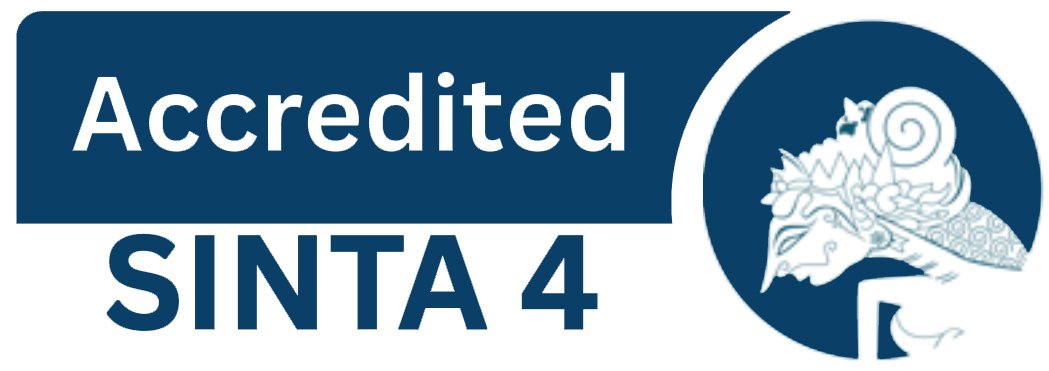PENGEMBANGAN GAME ANDROID TEBAK GAMBAR BENDERA NEGARA SEBAGAI MEDIA PEMBELAJARAN SUBTEMA GLOBALISASI DAN MANFAATNYA
DOI:
https://doi.org/10.22460/collase.v5i1.9981Keywords:
games, android, elementary educationAbstract
References
Abdul Jabbar, A. I., & Felicia, P. (2015). Gameplay Engagement and Learning in Game-Based Learning. Review of Educational Research, 85(4), 740–779. https://doi.org/10.3102/0034654315577210
Amalia, A., Rachman, A. A. R., Handayani, S. N., & Rostikawati, Y. (2018). Dampak Penggunaan Gawai Terhadap Hasil Belajar Mahasiswa IKIP Siliwangi Bandung. PAROLE (JURNAL PENDIDIKAN BAHASA DAN SASTRA INDONESIA), 1(2), 157–164.
Aminah, S. (2018). Implementasi Model ADDIE Pada Education Game Pembelajaran Bahasa Inggris (Studi Kasus Pada SMP Negeri 8 Pagaralam ). Jurnal Ilmiah Betrik, 9(03), 152–162. https://doi.org/10.36050/betrik.v9i03.41
Blanco-Herrera, J. A., Gentile, D. A., & Rokkum, J. N. (2019). Video Games can Increase Creativity, but with Caveats. Creativity Research Journal, 31(2), 119–131. https://doi.org/10.1080/10400419.2019.1594524
Cahyadi, R. A. H. (2019). Pengembangan Bahan Ajar Berbasis Addie Model. Halaqa: Islamic Education Journal, 3(1), 35–42. https://doi.org/10.21070/halaqa.v3i1.2124
Chen, C.-H., Law, V., & Huang, K. (2019). The roles of engagement and competition on learner’s performance and motivation in game-based science learning. Educational Technology Research and Development, 67(4), 1003–1024. https://doi.org/10.1007/s11423-019-09670-7
Creighton, S., & Szymkowiak, A. (2014). The Effects of Cooperative and Competitive Games on Classroom Interaction Frequencies. Procedia - Social and Behavioral Sciences, 140, 155–163. https://doi.org/10.1016/j.sbspro.2014.04.402
Del Moral Pérez, M. E., Guzmán Duque, A. P., & Fernández GarcÃa, L. C. (2018). Game-Based Learning: Increasing the Logical-Mathematical, Naturalistic, and Linguistic Learning Levels of Primary School Students. Journal of New Approaches in Educational Research, 7(1), 31–39. https://doi.org/10.7821/naer.2018.1.248
DiCerbo, K. (2013). Game-Based Assessment of Persistence. Educational Technology and Society, 17, 17–28.
Dye, M. W. G., Green, C. S., & Bavelier, D. (2009). The development of attention skills in action video game players. Neuropsychologia, 47(8–9), 1780–1789. https://doi.org/10.1016/j.neuropsychologia.2009.02.002
Fortuna RGP, P., & Hadi, A. (2019). RANCANG BANGUN APLIKASI BELAJAR PEMROGRAMAN DENGAN GAME EDUCATION PADA SMARTPHONE BERBASIS ANDROID. Voteteknika (Vocational Teknik Elektronika Dan Informatika), 7(3), 30. https://doi.org/10.24036/voteteknika.v7i3.105086
Garris, R., Ahlers, R., & Driskell, J. E. (2002). Games, Motivation, and Learning: A Research and Practice Model. Simulation & Gaming, 33(4), 441–467. https://doi.org/10.1177/1046878102238607
Hariyanto, N. S. (2018). Penerapan Game untuk Meningkatkan Motivasi dan Pemahaman Belajar Mahasiswa Akuntansi Universitas Surabaya. Calyptra: Jurnal Ilmiah Mahasiswa Universitas Surabaya, 7(1), 585–614.
Hasanah, E. N., Muftihah, N., Azis, A., & Budiyanto, C. W. (2020). Development of Go-Bung (Golek Tembung) Application As An Innovation of Android-Based Javanese Vocabulary for Children. Pancaran Pendidikan, 9(3). https://doi.org/10.25037/pancaran.v9i3.276
Iacovides, I., Cox, A., Furniss, D., Stawarz, K., Jennett, C., & Adams, A. (2019). Supporting engagement in research through a game design competition. Research for All, 3(1), 25–41. https://doi.org/10.18546/RFA.03.1.04
Klimova, B., & Kacet, J. (2017). Efficacy of Computer Games on Language Learning. Turkish Online Journal of Educational Technology-TOJET, 16(4), 19–26.
Li, J., Ma, S., & Ma, L. (2012). The Study on the Effect of Educational Games for the Development of Students’ Logic-Mathematics of Multiple Intelligence. Physics Procedia, 33, 1749–1752. https://doi.org/10.1016/j.phpro.2012.05.280
Looyestyn, J., Kernot, J., Boshoff, K., Ryan, J., Edney, S., & Maher, C. (2017). Does gamification increase engagement with online programs? A systematic review. PLOS ONE, 12(3), e0173403. https://doi.org/10.1371/journal.pone.0173403
Moffat, D. C., Crombie, W., & Shabalina, O. (2017). Some Video Games Can Increase the Player’s Creativity. International Journal of Game-Based Learning, 7(2), 35–46. https://doi.org/10.4018/IJGBL.2017040103
Mustangin, M. (2019). Improve Student Engagement and Collaboration with Kahoot! Jurnal Teknologi Dan Bisnis, 1(1), 59–65. https://doi.org/10.37087/jtb.v1i1.6
Oktavia, N., & Mulabbiyah, M. (2019). Gawai dan Kompetensi Sikap Sosial Siswa MI (Studi Kasus pada Siswa Kelas V MIN 2 Kota Mataram). El Midad, 11(1), 19–40. https://doi.org/10.20414/elmidad.v11i1.1903
Pitaloka, A. A. (2013). Perilaku Konsumsi Game Online Pada Pelajar (Studi Fenomenologi tentang Perilaku Konsumsi Game Online Pada Pelajar di Kelurahan Gemolong, Kabupaten Sragen tahun 2013). SOSIALITAS: Jurnal Ilmiah Pend. Sos Ant, 3(1), 1–12.
Pitarch, R. C. (2018). An Approach to Digital Game-based Learning: Video-games Principles and Applications in Foreign Language Learning. Journal of Language Teaching and Research, 9(6), 1147. https://doi.org/10.17507/jltr.0906.04
Purnamasari, N. L. (2019). Metode ADDIE pada Pengembangan Media Interaktif Adobe Flash pada Mata Pelajaran TIK. Jurnal Pendidikan Dan Pembelajaran Anak Sekolah Dasar, 5(1), 23–31. https://doi.org/10.29100/jpsd.v5i1.1530
Ratnawati, E., & Asniawati, A. (2020). Pemberian Motivasi Melalui Cerita Dan Games Untuk Menumbuhkan Minat Belajar Anak Usia SD Dan SMP. Dimasejati: Jurnal Pengabdian Kepada Masyarakat, 2(2), 204. https://doi.org/10.24235/dimasejati.v2i2.7286
Reyes-Chua, E., & Lidawan, M. W. (2019). Games as Effective Language Classroom Strategies: A Perspective From English Major Students. European Journal of Foreign Language Teaching, 4(1), 111–131.
Setiawan, H. S. (2018). Analisis Dampak Pengaruh Game Mobile Terhadap Aktifitas Pergaulan Siswa SDN Tanjung Barat 07 Jakarta. Faktor Exacta, 11(2), 146. https://doi.org/10.30998/faktorexacta.v11i2.2338
Shabaneh, Y., & Farrah, M. (2019). The Effect of Games on Vocabulary Retention. Indonesian Journal of Learning and Instruction, 2(01). https://doi.org/10.25134/ijli.v2i01.1687
Siutila, M., & Karhulahti, V.-M. (2021). Continuous play: leisure engagement in competitive fighting games and taekwondo. Annals of Leisure Research, 1–17. https://doi.org/10.1080/11745398.2020.1865173
Sugihartini, N., & Yudiana, K. (2018). ADDIE SEBAGAI MODEL PENGEMBANGAN MEDIA INSTRUKSIONAL EDUKATIF (MIE) MATA KULIAH KURIKULUM DAN PENGAJARAN. Jurnal Pendidikan Teknologi Dan Kejuruan, 15(2), 277.
Suhendrianto, S. (2017). Pengembangan media pembelajaran monopoli tematik untuk meningkatkan motivasi belajar siswa kelas IV MIN Tegalasri Kec. Wlingi Kab. Blitar. Universitas Islam Negeri Maulana Malik Ibrahim.
Supriyono, H., Murtiyasa, B., Rahmadzani, R. F., & Adhantoro, M. S. (2018). Penerapan Game Edukatif untuk Meningkatkan Motivasi Belajar Siswa Setingkat Madrasah Ibtidaiyah. WARTA LPM, 21(1), 30–39.
Syahyudin, D. (2019). Pengaruh Gadget Terhadap Pola Interaksi Sosial dan Komunikasi Siswa. GUNAHUMAS: Jurnal Kehumasan, 2(1), 272–282.
Tegeh, I. M., Jampel, I. N., & Pudjawan, K. (2014). Model penelitian pengembangan. Yogyakarta: Graha Ilmu.
Walid, I. (2017). Pengembangan Media Pembelajaran Interaktif Berbasis Geogebra dengan Model Pengembangan ADDIE (Analysis, Design, Development, Implementation, Evaluation) pada Materi Geometri Kelas XI MIA SMA Negeri 3 Takalar.
Widodo, W., Sudibyo, E., Suryanti, S., Sari, D. A. P., Inzanah, I., & Setiawan, B. (2020). The Effectiveness of Gadget-Based Interactive Multimedia in Improving Generation Z’s Scientific Literacy. Jurnal Pendidikan IPA Indonesia, 9(2), 248–256. https://doi.org/10.15294/jpii.v9i2.23208



